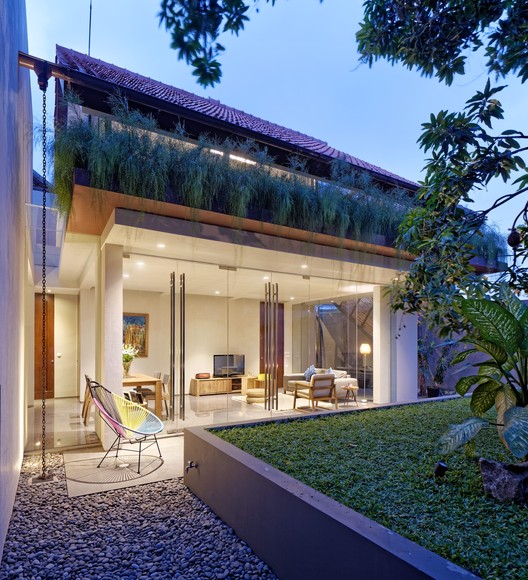
-
Architects: Gets Architects
- Area: 196 m²
- Year: 2015
-
Photographs:Fernando Gomulya
-
Manufacturers: Accupunto, Acor, Ethnic rafts, Ikea, Toto

Text description provided by the architects. Located in a rather busy midtown of Jakarta, DeeRoemah is a renovation project of a two-storey house on a 280 m2 irregular shaped site which comprises of 1 master bedroom, 3 child/guest bedrooms, living room, dining room, kitchen, office and storage.























